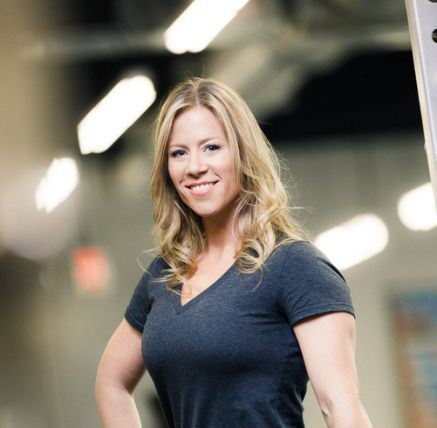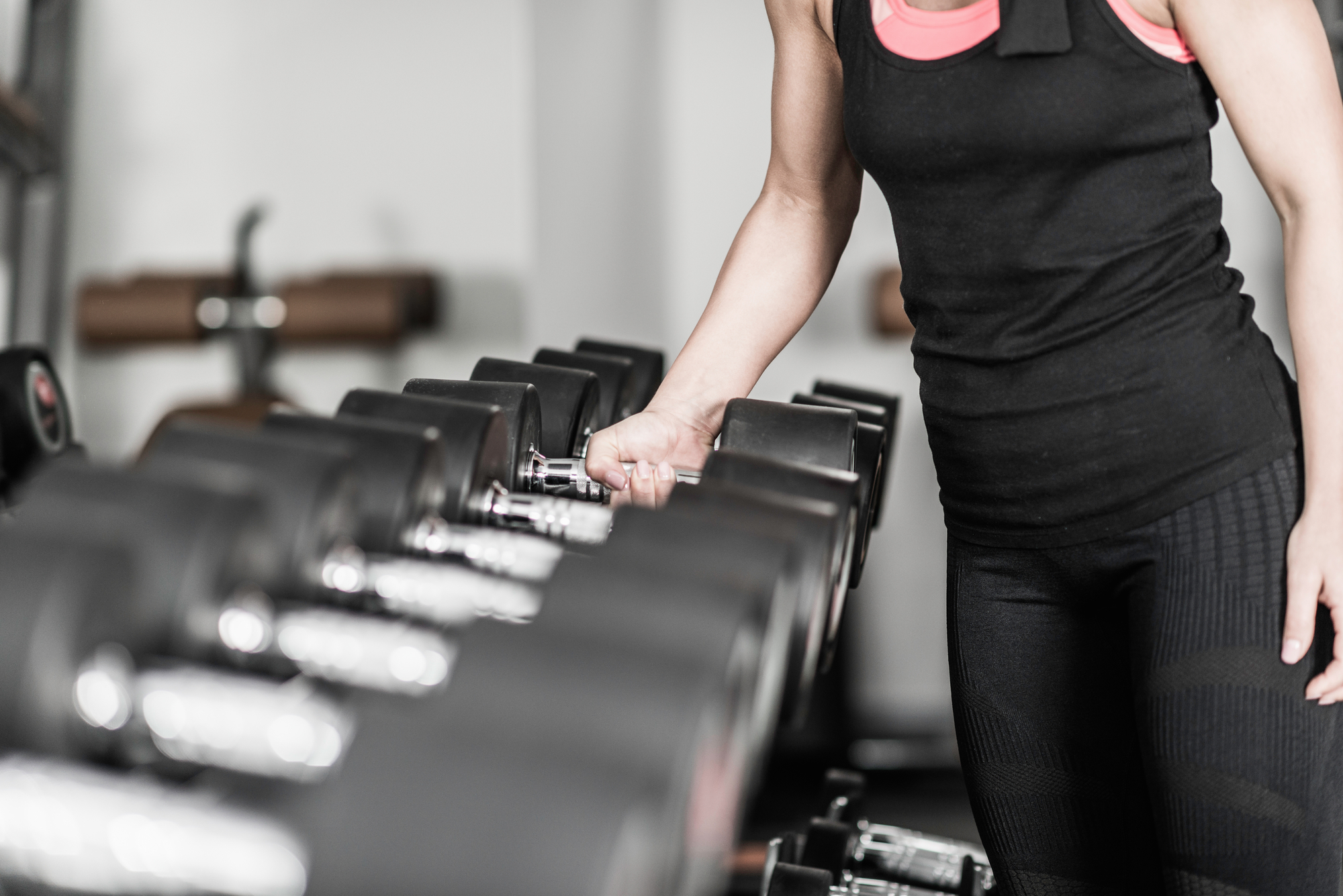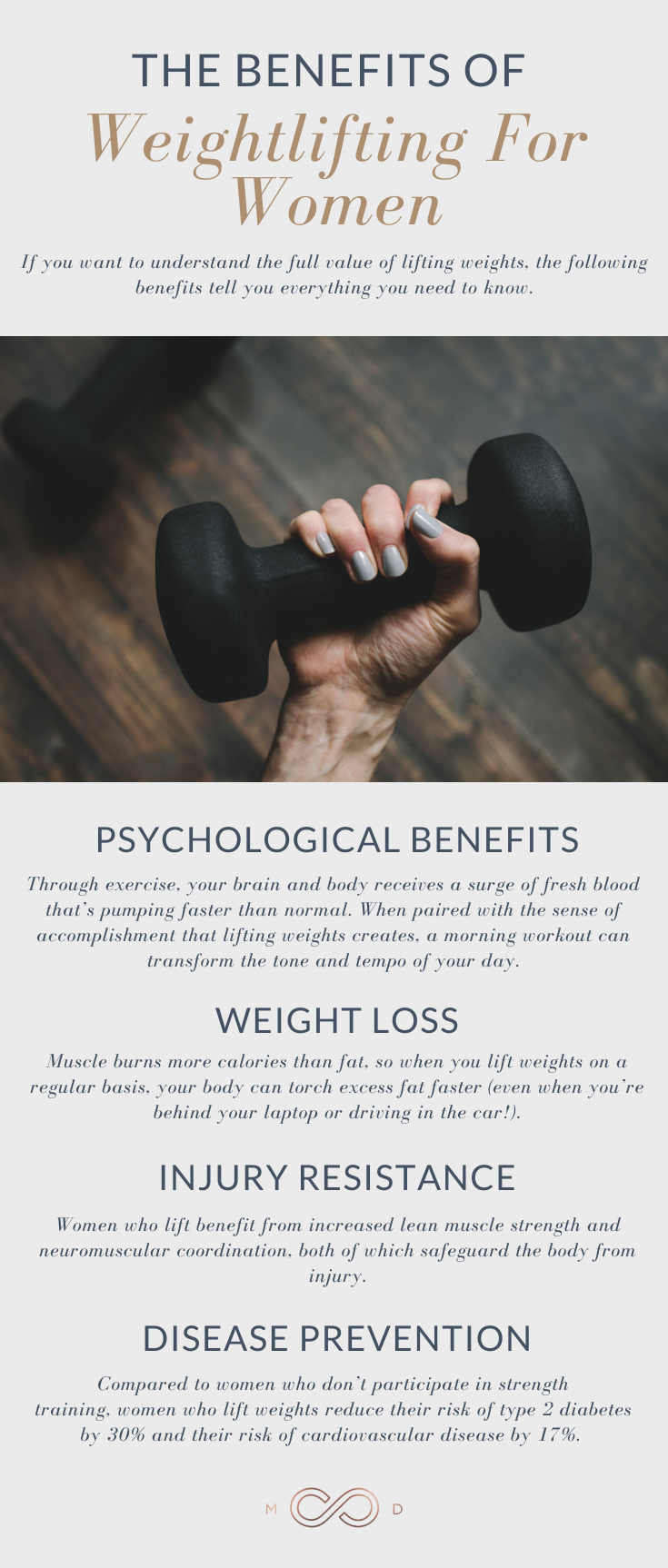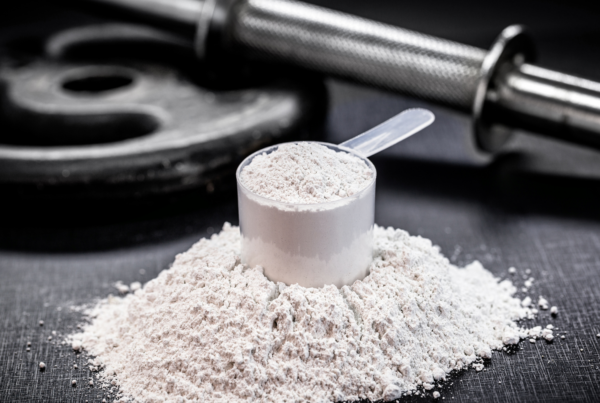Download file | Play in new window |
Pop your head into any gym across the country, and you’re guaranteed to find buff, sweaty, muscular men pumping iron. Nobody gives it a second thought.
But what about women? You might find a few courageous ladies taking their stand among the throng of men near the weight racks, but the majority of women approach resistance training with hesitancy or downright skepticism.
 Which is exactly why Brandi Binkley is joining me to discuss the compelling reasons that women should lift weights! As a veteran in the exercise and wellness industry, Brandi understands weight training inside and out. Not only has she worked as an exercise physiologist and coach for 18 years, but she’s also one of only three women in the world to have received the prestigious National Strength and Conditioning Personal Trainer of the Year Award.
Which is exactly why Brandi Binkley is joining me to discuss the compelling reasons that women should lift weights! As a veteran in the exercise and wellness industry, Brandi understands weight training inside and out. Not only has she worked as an exercise physiologist and coach for 18 years, but she’s also one of only three women in the world to have received the prestigious National Strength and Conditioning Personal Trainer of the Year Award.
In between helping to rewrite the U.S. Army Combat Fitness Program and founding her training studio PhysioFit in Nashville, Brandi makes it her mission to help women pursue greatness through movement. If you’re curious about why women should lift weights or you’re ready to launch into a new strength and conditioning workout routine, Brandi is the trainer you want in your corner.
Women and Weightlifting: We’re Taught More Myths Than Facts
As a private physician, I admit that I underestimated the lack of clarity surrounding the topic of women who lift weights. The gender roles in our society have always favored men as the strong, muscular hunters and women as the nurturing caretakers. Even though we’ve evolved significantly since those gender codes were established, they still influence our perceptions of what’s “right” or “wrong” in physical fitness.
Put plainly, women don’t want huge, ripped muscles! They’re afraid to start a weight lifting routine because they don’t want to become “too buff” like the hulking guys by the bench press. This is where it’s so important for us to distinguish myth from fact: it is hormonally and physiologically impossible for an everyday woman to naturally grow muscles like men.
Sure, professional female bodybuilders who spend three hours a day in the gym or supplement with anabolic steroids can chisel huge muscles. But that’s the one-in-a-million exception, not the rule. Under normal circumstances, even when women perform the same strength training routine as men, their muscles respond differently.
This isn’t just an observation, it’s indisputable physiology. Muscles in the male body are composed of larger fibers than muscles in the female body. This means that women can’t sculpt massive biceps and bulging pecs. Instead, females build stronger, leaner muscles that help them burn more calories, tighten their trouble spots, and remain injury-free.
Unfortunately, this is rarely the advice women receive when they search for weight loss tips online or join a new gym. Women are taught to hit the treadmill or the sidewalk to shed pounds, but that type of cardio can’t deliver a fraction of the benefits of weight lifting.
Benefits of Weightlifting For Women
Most women begin weightlifting to slim down and get sculpted, but the benefits of strength and conditioning go far beyond the superficial. Brandi understands the true benefits of weightlifting better than most people.
“I actually got into fitness as a middle schooler,” she explains. “It was around the 8th grade that I was in the guidance counselor’s office at school with a group of other kids who were being given tools to help them cope with alcoholic parents. And exercise was one of the tools they said would help us de-stress and manage our emotions.”
Through middle school, high school, and college, exercise became Brandi’s best coping mechanism and safe place. While her college friends attended aerobics classes, Brandi hit the weight room.
It’s true that fitness is an integral part of a healthy lifestyle and weight loss, but it also offers a psychological tool that challenges your body inside and out. If you want to understand the full value of lifting weights, the following benefits tell you everything you need to know.
Psychological Benefits
If you don’t immediately associate lifting weights with emotional health and clarity, you’re in good company. But as Brandi points out, “The reality is there’s a lot of stuff going on that’s way deeper than we can even articulate. And exercise forces us to go to those places.”
Just like Brandi used weight lifting as a tool to control stress and emotions, other women who lift uncover surprising psychological benefits. The research done on brain-derived neurotrophic factor is just one example. Studies show that participating in a moderate-to-vigorous activity like weight lifting within the first hour of waking up improves cognitive levels significantly throughout the day.
If you really think about it, this makes sense! Through exercise, your brain and body receive a surge of fresh blood that’s pumping faster than normal. When paired with the sense of accomplishment that lifting weights creates, a morning workout can transform the tone and tempo of your day.
Weight Loss
Weight loss usually sits at the top of the list of reasons why women should lift weights, and there’s no denying its importance. Just keep in mind that weight loss isn’t only about a number on the scale.
Strength training, as the name suggests, strengthens your muscles and increases your lean body mass. Since bigger muscles weigh more than smaller muscles, you may “only” drop from 145 pounds to 140 pounds, but physically you’ll look slimmer, trimmer, and toned. Muscle burn calories from fat, so when you lift weights on a regular basis, your body can torch excess fat faster (even when you’re behind your laptop or driving in the car!).
The research on this is clear: combining a healthy diet with weight training achieves greater fat loss in older adults with obesity than combining a healthy diet with a low-intensity cardio routine like walking. Weight lifting recognizes that the body is an interconnected machine, with one working part influencing the others. By loading weights on during squats and curls, you recruit the other smaller muscles to help. This demands energy and calories, which melts away fat.
Injury Resistance
Whether we like it or not, we become more injury-prone as we age. However, it’s easy to counteract this risk factor with strength and conditioning weight training. Women who lift benefit from increased bone density, lean muscle strength, and neuromuscular coordination, all of which safeguard the body from injury.
Disease Prevention
There are plenty of wild health and wellness claims circulating the internet, but here’s one claim that you can take to heart: lifting weights helps to prevent disease. Your risk of everything from cardiovascular disease and obesity to type 2 diabetes drops significantly.
According to recent research, compared to women who don’t participate in strength training, women who lift weights reduce their risk of type 2 diabetes by 30% and their risk of cardiovascular disease by 17%!
As you increase lean mass and decrease visceral fat, your risk of hypertension and metabolic disease diminishes. The health benefits even go beyond that, since you’ll sleep better, enjoy a stress outlet, and achieve other good habits that prevent future disease.
How Does Exercise Benefit Mental Health?
As a physician, I believe that exercise is the number one treatment for depression, and Brandi agrees.
“There’s nothing in the world that touches it. Moving your own body and increasing those positive hormones, whether it’s feel good hormones or actual muscle stimulus hormones, they’re all produced by strength training.”
We’re lucky to live in a time when the research on the mental health benefits of strength training is finally catching up to the abundance of research on the benefits of cardiovascular exercise. Recent studies highlight the incredible power of strength training to improve mental health:
- Reduces anxiety symptoms
- Improves sleep quality
- Releases mood-boosting hormones
- Creates tangible sense of accomplishment
- Increases energy levels
Simply put, women who lift weights tap into a mental health superpower every time they step into the gym.
Brandi hits this point home: “I always hear people say, when they’ve lost a lot of weight [through exercise], I didn’t know how miserable I was. I didn’t know what I was missing.”
How Women Can Start Weightlifting
Now you’re starting to understand why women should life weights. Whether you’re motivated to lose body fat, safeguard your body from disease, or anything in between, you’re ready to dip your toe into the world of resistance training! So where do you begin?
As Brandi reminds us, there’s no perfect exercise or weight training recipe that works for every woman. It all depends on where you are and where you want to go. What’s your current physical health? What are your future goals?
Brandi recommends partnering with a personal trainer or coach who can help you develop a realistic plan to achieve your goals, manage expectations, and mentor you along the way.
However, without personal trainer regulations in place, it’s all too easy to spend your money on a “coach” who doesn’t deserve that title. Use the following tips to find a trainer you can trust.
- Academic experience: Find a trainer with a degree in exercise science, kinesiology, or health and human performance. This academic experience means they’ve studied biomechanics and understand the intricacies of strength training. Here’s an easy test: Ask your trainer why you’re performing a certain move or repetition. If they can’t give you a specific answer, they’re not the right choice. You deserve more than someone who strings a few exercises together and calls it a routine.
- Track record of success: Dig into your personal trainer’s past and current clients to get a sense of their track record. Are their clients fit, inspired, and motivated? That’s the proof you want to see.
- Busy schedule: If the personal trainer you want to hire has a busy schedule, take that as a good sign! It means they’re well-loved and trusted by many other men and women seeking similar goals.
Other Words of Advice For Women Who Lift
As a physician who is desperate for his patients to feel good and live a long time, I’ll never stop emphasizing the importance of eliminating excess visceral body fat, nurturing a healthy mindset, and managing stress. This is exactly why women should lift weights. It turns out that strength training checks all three of those boxes!
For so long, women were at a tremendous disadvantage in the weight lifting world. The first large-scale government-funded study of women’s health and longevity didn’t even occur until 1992! Now our society has finally realized that women have the strength and intensity to lift weights, tone muscles, and achieve the best physical and emotional health possible.
I can’t think of one thing you can do with your physical body that would be more impactful than figuring out what weight lifting means to you, and if you need a trainer, hire one! Brandi seconds my thoughts: “It’s the best money you’ll ever spend on yourself.”
You can either spend time and money now to improve your health, wellness, and quality of life. Or you can wait and spend exponentially more time and money later to combat diseases and struggle to regain a decent quality of life.
Brandi wishes women knew that lifting weights isn’t as complicated as it seems. Even if you feel self-conscious, people aren’t looking at you or judging you. They’re involved in their own workout, not yours. It doesn’t take long for hesitancy and fear to be replaced by confidence and enthusiasm.
This mindset shift is an essential element of Brandi’s work with her Nashville Physiofit clients.
You’re worth the time, money, and space to take care of yourself. After all, your body is the only asset that you came into this world with, and that you can take when you leave. Isn’t it worth the time and effort to take care of the only thing that’s one hundred percent yours?

Dr. Aaron Wenzel is a concierge physician specializing in the care of fast-moving entrepreneurs, executives, and public figures in the Nashville, TN area. Dr. Wenzel’s diverse life experience and extensive training in family medicine, emergency care, nutrition, and hormone replacement therapies give him the unique platform to provide unmatched care for his patients.








